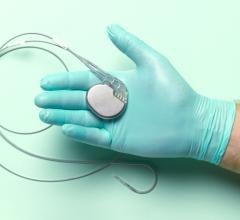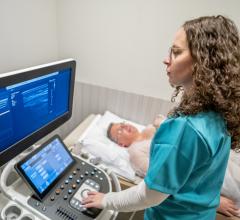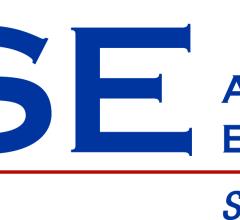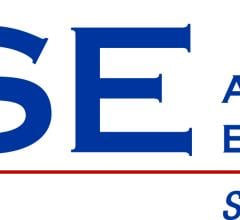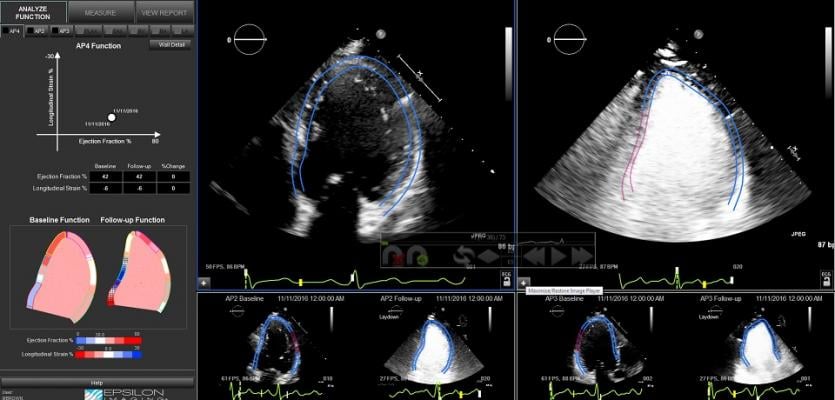
June 12, 2017 — A study using strain imaging presented at the American Society of Echocardiography (ASE) 2017 demonstrated increased utility with contrast-enhanced echo studies. Performed by a group from the University of Chicago, the study indicated EchoInsight to be accurate in assessing contrast-enhanced echo with its proprietary software, Epsilon Imaging’s EchoInsight, providing global longitudinal strain (GLS).
“GLS is a valuable index for assessing cardiac function and is advocated by the ASE chamber quantification guidelines and recommendations for monitoring adult oncology patients undergoing chemotherapy. Contrast agents are commonly used to improve endocardial visualization. However, no commercial speckle tracking software has been able to measure strain in contrast-enhanced images,” said Roberto Lang, M.D., director of noninvasive cardiac imaging laboratories at the University of Chicago Medicine. “This study is encouraging as we found EchoInsight to be feasible and provide accurate GLS for improved cardiac function assessment with contrast-enhanced studies.”
The study, “Feasibility of Global Longitudinal Strain Measurements in Contrast-Enhanced Images,” was presented by Lang, Roberto, Mor-Avi, Victor and Medvedofsky, Diego, et al. from the University of Chicago. The methodology of the study included 26 patients referred for a contrast-enhanced echo study, because of suboptimal image quality. Half the manufacturer recommended dose of a commercial contrast agent (Definity/Optison) was used to provide partial contrast enhancement with lower bubble density than typically used for LV opacification. Higher than normal mechanical indices (0.6-0.7) were used for imaging. GLS was measured with EchoInsight at midsystole in the left ventricle (LV) four-chamber view on both contrast-enhanced and non-enhanced images. Manual corrections were performed as needed to optimize boundary tracking throughout the cardiac cycle. The study resulted with the algorithm failing in three patients with hyperdynamic LV function, due to inadequate contrast enhancement, and manual corrections were needed to optimize tracking with contrast in all remaining 23 patients. GLS measurements were in good agreement between contrast and non-contrast images (r=0.84) in University of Chicago’s cohort of patients with a wide range of GLS values.
VIDEO: Echocardiography Strain Fundamentals Made Easy
Read the article "Strain Imaging Improves Cardiac Surveillance of Certain Breast Cancer Patients."
Read the article "Automation Enhances, Streamlines Echocardiography."
For more information: epsilon-imaging.com/solutions/

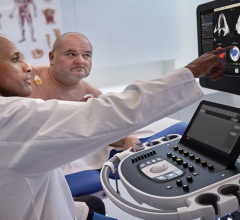
 June 12, 2024
June 12, 2024 

